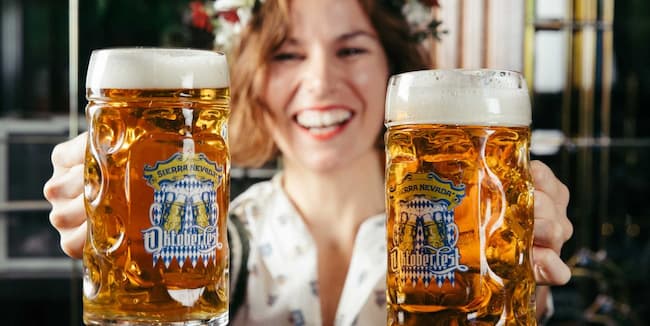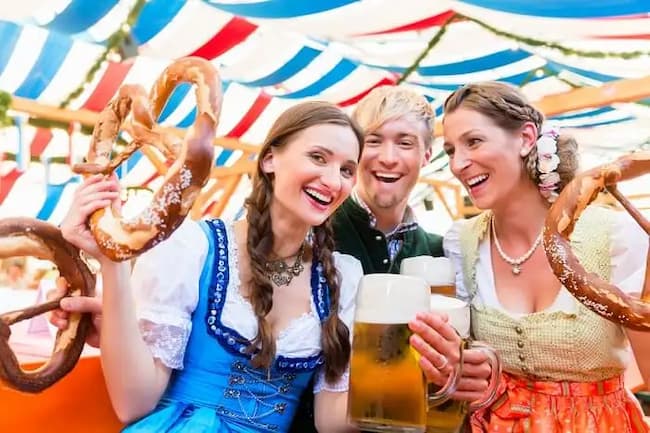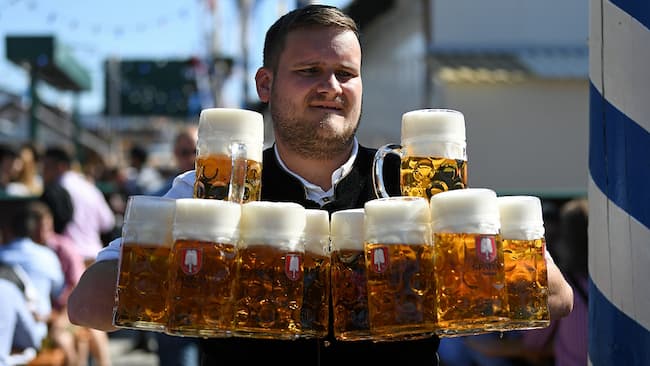Oktoberfest beer is an iconic part of the traditional Bavarian celebration. Every year, millions of people around the world flock to Munich for a chance to experience Oktoberfest and its unique beers. Whether you’re planning your own Oktoberfest celebration or just want to know more about this beloved brew, understanding Oktoberfest beer is essential.

In this article, we’ll discuss everything you need to know about Oktoberfest beer – from its history and origins to where it can be found today. So grab a stein and get ready for a crash course on Oktoberfest beer!
Oktoberfest Beer
The Oktoberfest is the world’s largest Volksfest (beer festival and traveling funfair). Held annually in Munich, Bavaria, Germany, it is a 16–18 day folk festival running from mid or late September to the first weekend in October.
During this time, millions of people from around the world come together to enjoy traditional German beer at its finest. Oktoberfest beer has become one of the most recognizable symbols of Bavarian culture, and its influence is felt around the world.

In order to be considered Oktoberfest beer, the brew must meet strict criteria set out by the Munich Brewers’ Association. The beers must be brewed within Munich city limits using traditional recipes and ingredients, with bottom-fermenting yeast, and with a minimum of 6% alcohol content.
The resulting beers are full-bodied, malty lagers that have an unmistakable toasty flavor. Oktoberfest beer is typically enjoyed in traditional steins made from ceramic or pewter. These large vessels hold up to two liters of beer at once – perfect for sharing with friends!
The Oktoberfest beer served during the festival is a special, limited-edition brew that’s only available for a short time each year. Many breweries around the world create their own version of this iconic beer, so it can be enjoyed outside of Munich as well.
If you are new to beer and all, learn how to read expiration date on beer in this guide.
What is Special about Oktoberfest?
The beer at Oktoberfest is special for a number of reasons. For starters, it has its own unique flavor that sets it apart from other types of beer. The traditional recipes and ingredients used in Oktoberfest beers also contribute to their distinct taste and aroma.
In addition to the unique flavor, Oktoberfest beer is steeped in a centuries-old tradition. The first Oktoberfest was held in 1810 to celebrate the marriage of Crown Prince Ludwig and Princess Therese of Saxony-Hildburghausen. Since then, it has become an annual celebration that brings together people from all over the world for a week or two each fall.

This beer is also special because of its association with the famous German celebration. The beers can be found at beer tents and stand throughout Munich during the festival, and their presence is a reminder of why millions of people come to Oktoberfest every year – for good food, great beer, and wonderful company!
What is Oktoberfest beer made of?
Oktoberfest beers are made with four main ingredients: water, malt, hops, and yeast. The recipes for these beers vary from brewery to brewery but generally feature a blend of light and dark malts that give the beer its distinct malty taste. Hops are also added for flavor and aroma, while the yeast is responsible for fermenting the wort (the sugary liquid produced during the brewing process).
The hops used in the beer at Oktoberfest are typically of a noble variety, such as Hallertauer, Tettnanger, or Spalt. These hops are known for their mild bitterness and pleasant aromas – perfect for adding a bit of character to Oktoberfest beers.
Conclusion
The Oktoberfest beer served during the festival is a special, limited-edition brew that’s only available for a short time each year. Many breweries around the world create their own version of this iconic beer, so it can be enjoyed outside of Munich as well. Whether you’re attending a local Oktoberfest celebration or hosting your own, make sure you have plenty of Oktoberfest beer on hand to enjoy! Have a question? Drop it in the comments. Check out Chill Beer for more similar and interesting information.